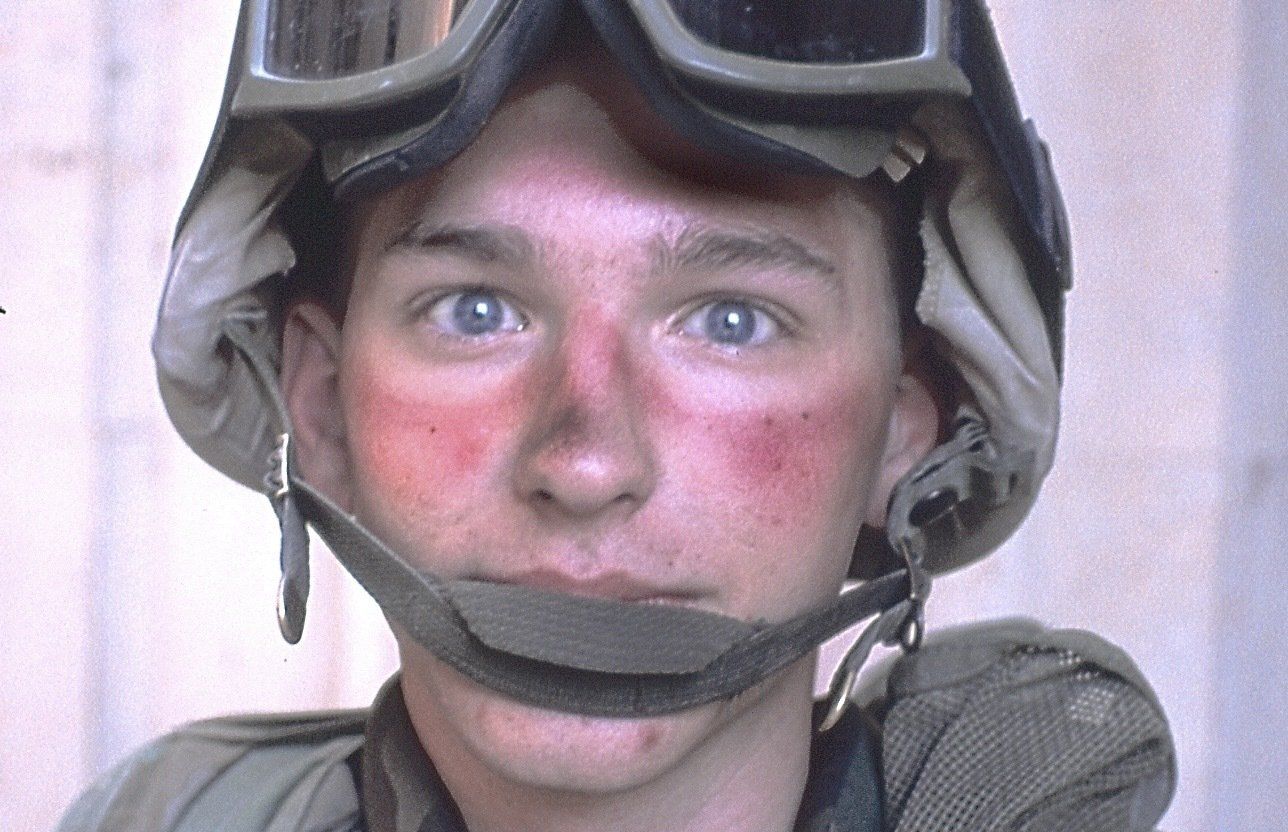Twenty years ago today, the US invaded Iraq. Just weeks later, the American filmmaker — and frequent GZERO contributor — Mike Tucker embedded with a group of fresh-faced US troops in Iraq, to make the film “Gunner Palace.”
It was the first great documentary about the war – a gripping, chaotic, and occasionally darkly humorous portrait of what was, basically, a group of kids sent to kill in a country that they knew little about. One of those soldiers, Specialist Thomas P. Susdorf, is pictured above.
“To be a combat veteran is awesome, it’ll be great to look back on,” says one of Susdorf's fellow gunners partway through the film, “I’m just trying to get to the point where I can look back on it.”
That point is now. During the pandemic, Mike and co-director Petra Epperlein crisscrossed the United States, tracking down the Gunner Palace kids to learn how the war has shaped their lives ever since.
The resulting short film, co-produced by the Eurasia Group Foundation and published last week by The New York Times, is called “The Army We Had.”
In it, Tucker and Epperlein cut footage of the idealistic, war-hungry recruits of “Gunner Palace” against interviews with the people they’ve become today: men slouching into middle age, still warped by the traumas and unanswered questions of the war. Who were they fighting? Why were they there? What good did it do?
Mike is currently in Ukraine, but we grabbed a few minutes of his time to ask him about the lessons of “The Army We Had,” the biggest differences between Ukraine and Iraq, and what he thinks most people don’t understand about the experience of war.
His answers have been lightly edited.
Alex Kliment: Mike, congratulations on the new film. Where are you right now and what are you up to?
I’m in Ukraine currently, where we’ve been shooting a project for the last seven months about how a ragtag army of volunteers is getting machines and material to the front lines.
What’s the main lesson that you want people to take away from “The Army We Had?”
It’s crucial that America rethinks how and when it authorizes force. After all the death, suffering, sacrifice, deployments and military spending in Iraq, it’s hard to point to any positive outcomes. Even if it’s difficult, we need to debate and exhaust all other options before we commit to war. You can see that in the faces of the soldiers in the film.
Twenty years after “Gunner Palace,” you’re in the middle of an equally era-defining war in Ukraine. How do the two experiences compare?
The war in Ukraine couldn’t be more different from Iraq. For one thing, rather than filming the aggressor, this time I’m filming people resisting Russian aggression, and I feel it’s essential for people in the West to understand that.
But also, technology has changed everything. The invasion of Iraq was before YouTube. Before social media. Now in Ukraine, combatants are flooding social media with content – with a raw immediacy that dwarfs anything we’ve ever seen — to the point that I think we risk becoming numb to the horror.
You’ve spent a lot of time in and around war, what do you think the general public understands least well about the experience?
Well as for Ukraine right now, what people aren’t seeing on the news is the psychological impact on Ukrainian civilians. Air alarms ring out around Kyiv 2-3 times a day. Worst of all, it all feels normal, when it’s anything but.
But to paraphrase [American journalist] Chris Hedges, “war gives us meaning.” I like to think of the “Gunner Palace” year as both the best and worst year of those soldiers’ lives, and I think many of them would agree. They’ll never feel that close to other people ever again. And for many of them, regardless of the problems with the mission itself, some will never feel such purpose again. In war — around war — everything matters.
You can (and should!) watch the film “The Army We Had” here.
